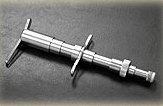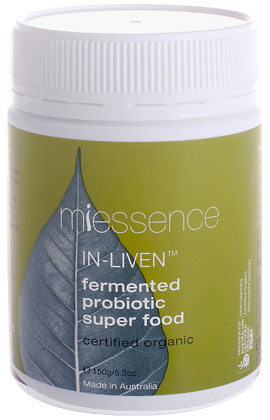|
TRT Seminar Dates: TRT Advanced Workshops: Auriculotherapy Training Dates: |
HEALTH AND QUALITY OF LIFE QUESTIONNAIRES... |
|
|||||
|
HEALTH OUTCOME QUESTIONNAIRES FOR CHIROPRACTIC PRACTICE Don’t Use Testimonials – Use Evidence
We’ve all been in the same situation. A new client arrives in our practice with an agonizing story of pain and suffering, numerous invasive procedures under their belt, and multiple therapeutic failures behind them. And then the Chiropractic magic starts. Seemingly from the time they commence receiving Adjustments, their health complaint starts to recede and their overall wellbeing starts to increase. And we’re not just talking about bad backs are we? ADHD, Allergies, Anxiety, Arthritis, Asthma, CFS, Babies with Colic and Reflux, CTS, Depression, Digestive problems, Epilepsy, Headaches and Migraines, Menopause, MS, Parkinson’s, PMS, Sickly Kids, Sleep Disorders, Shoulders, Ankles, Feet, Jaws….. The results are at some times so amazing that we think to ourselves, “I should write this case up and submit it for publication. After all the journals are always calling out for case reports.” So we sit down and review the case and we’re suddenly confronted with a problem: How can I demonstrate that the problem actually did improve? After all the success story of one patient is really nothing more than a testimonial? If only you’d had a tool in your kit when the client first presented to quantify the severity of their symptoms and the level of disability and dysfunction? Well, now you can easily – by incorporating outcome questionnaires. Imagine when that client had first presented, that you had a method to quantify the symptoms and functional disturbance that their major health concern was producing. And after their initial care you could show the world that the severity had decreased by X% and the regularity of the problem had reduced by Y%. But there are many more important reasons to utilise outcome tools in your practice:
Some time ago I decided that I needed a folio of outcome questionnaires, on a wide range of health concerns that I could pull out of my drawer when the client with the matching health concern presented. Sounds simple? I was reassured by academics that many such outcome tools already existed. This is true but there are three major problems with most of these: 1) Many are too limited from a clinician’s point of view: I didn’t just want a tool that could measure a couple of symptoms, or a limited number of daily functions. I wanted a tool that actually documented the major “real-life” symptoms and dysfunctions of each health concern. 2) Some seem quite irrelevant and inadequate from a Chiropractic point of view: For example a headache questionnaire that doesn’t even ask any questions about related spinal pain or neck dysfunction is missing a key component. 3) Most are not actually as freely accessible to a private practitioner as one would hope! Some even demand fees payable for each individual use of the questionnaire – Lennon and McCartney must have taught the academics how to accumulate a passive income? So, I sat down and invented my first outcome questionnaire – the ADHD quiz. Since then I have been gradually developing questionnaires on a wide range of health issues. NOW YOU CAN ENJOY THE PRACTICE EXPANDING BENEFITS OF THESE SIMPLE TOOLS. My promise is that these will add to the quality of care that you offer to your community, and lead to a stream of word of mouth referrals needing your help. So far I have designed thirty five questionnaires on the following topics: Ability To Work, ADHD, Allergies, Ankle/feet, Anxiety, Arthritis, Aspergers Syndrome, Asthma, Autism, Baby’s Health, Basic Daily Living, Carpal Tunnel Syndrome, Cerebral Palsy, Chronic Fatigue Syndrome, Depression, Digestive, Epilepsy, Fertility, General Health, Headache and Migraine, Immune System. Jaw, Kid's Health, Knee, Low Back/Sciatica, Menopause, Mid-Back, Multiple Sclerosis, Neck, Parkinson’s, Pre-Menstrual Syndrome, Shoulder, Sleep, Smokers and Vertigo. The questionnaires come in .PDF and excel spreadsheet format on one CDROM for an affordable fee. Once you purchase the CD you can print off as many copies as you wish, and/or store and analyze the data electronically. And now the CDROM also contains excel comparison spreadsheets so you can collect and collate data from a group of patients with the same complaint. Plus we throw in a bunch of extra questionnaires which can be used in wellness coaching, and a collection of practice and personal development fact sheets, including "how to build your practice with health outcomes questionnaires". We are repeatedly being told that we are in the evidence-based health care era. My argument with this trend is that “evidence-based practice” should not just be doing what has already been peer-reviewed and published. I contend that it is actually having methodologies to gather and demonstrate objective “evidence” that you are changing what you claim to be changing. Proof that your brand of magic works. If you are treating back pain but the only evidence of success you have is your “PVA”, then you may not have acceptable evidence. If you expect a client’s asthma to improve when you adjust them over a course of weeks, but if the only evidence you have is an improved cervical curve; is that really evidence that you have changed their Asthma? If you are a “wellness” practitioner but have no means of quantifying your clients’ current state of wellbeing, then how do you know that you are an effective wellness practitioner? These questionnaires have been specifically designed with a balance between “feeling and function” and do not focus on symptoms alone. They also quantify severity and regularity which most other questionnaires fail to differentiate. In fact these questionnaires open up whole new areas of discussions with your clients about the benefits of a chiropractic lifestyle – QUALITY OF LIFE and HEALTH OPTIMISATION. To see two samples click Click Here... and Click Here... BUY NOW... $99CODE: Quest |
|
||||||
|
MAIN Quick Order TRT Training Integrator TRT Stuff Auriculotherapy Text Books Super Posture Questionnaires Meditation Organic Addictionology ADHD Posters Kids' Book Advertising BLOG Site Map Contact Us Torque Release Technique (TRT) Training, Chiropractic Equipment and Resources; Auriculotherapy Training and Equipment; Addictionology Training; Super Posture Correction Program; Health Outcome Questionnaires; Insight and Focus Binaural Beat Meditation CDs; ADHD Natural Treatment Resources; Chiropractic for Kids Book; Chiropractic Posters Slide Show; MiEssence and MiVitality Certified Organic Personal and Health Care Products; Chiropractic Advertising. © Dr Nick Hodgson 2008 2005 Victorian Chiropractor of The Year, Australasian TRT Training Provider, Fellow Holder Research Institute. Visit Nick's other web site at www.superhealthy.com.au |
|







